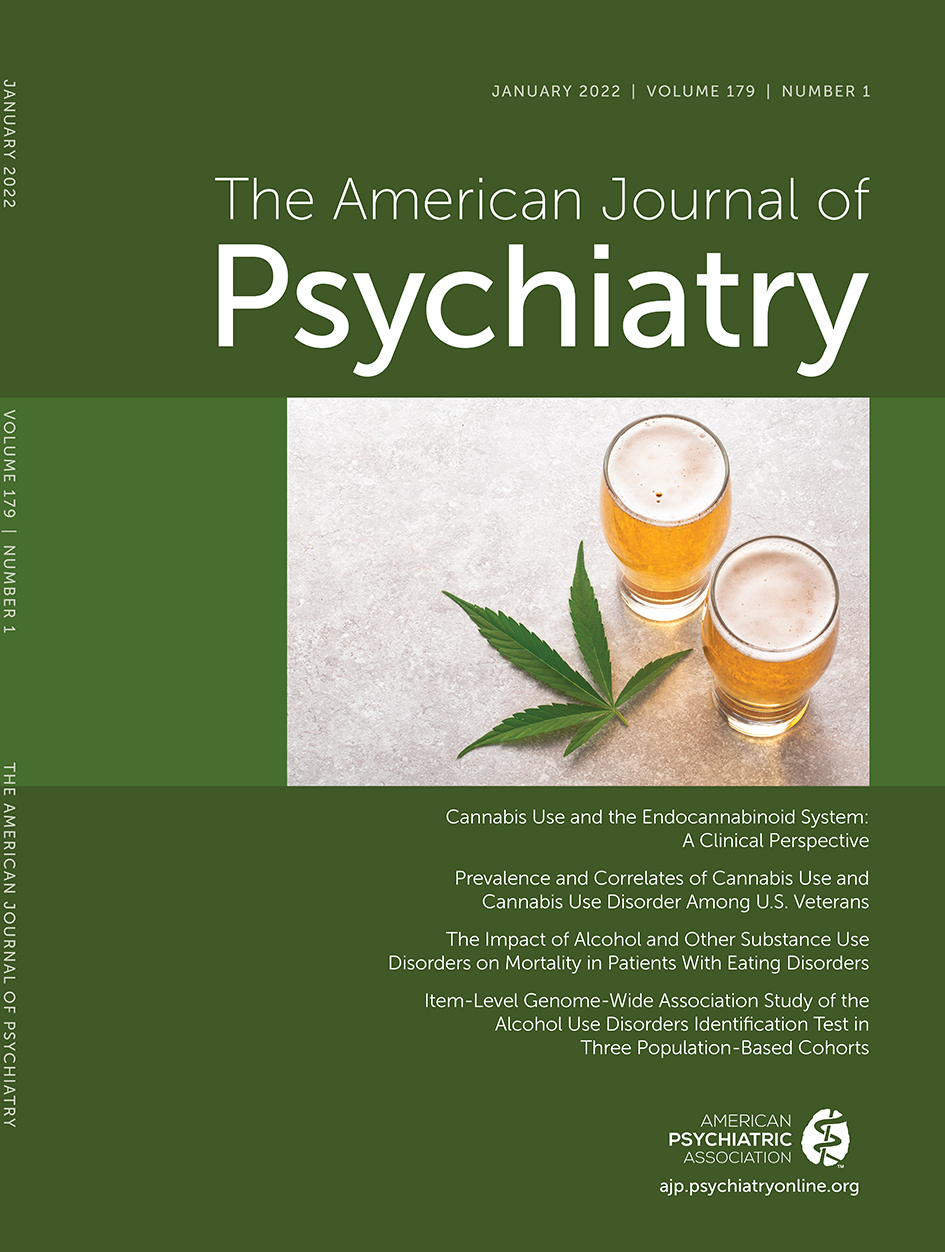Comment on “Elevated C-Reactive Protein in Patients With Depression, Independent of Genetic, Health, and Psychosocial Factors: Results From the UK Biobank”
To the Editor: We read with great interest the research by Pitharouli et al. and the commentary by Penninx in the June 2021 issue of the Journal (1, 2). We wish to raise a concern on a potential limitation not addressed in the article or commentary but which may have confounded the findings.
The authors expertly illustrated and replicated the link between major depressive disorder and the nonspecific inflammatory marker C-reactive protein (CRP). After accounting for body mass index (BMI) and smoking, however, the association between major depression and CRP levels was largely attenuated, and the association between polygenic risk score (PRS) for depression and CRP levels became insignificant. The article concludes that the link between major depression and inflammation as indexed by CRP is likely “due to regulation of eating and smoking habits rather than an 'autoimmune' genetic predisposition.”
We believe that the covariation analysis and this conclusion did not fully consider the likely long-term impact of depression on smoking and BMI. The average ages of the UK Biobank sample used in this analysis were mid-50s, while the age of onset of major depression is often teens and twenties (3). Decades of depressive illness in many of the participants may have led to increased rates of smoking and obesity, a link suggested by a wealth of literature. If obesity and smoking are in part the direct and/or indirect consequence of depression, the apparent attenuation of the association between major depression and CRP due to their inclusion in the model could be an overcorrection by removing the cumulative consequences of depression itself. Although age was a covariate in the analyses, the restricted age range of the UK Biobank sample may not represent illness duration effects spanning many years.
Dr. Penninx also rightly points out another source of potential “overadjustment,” since BMI is not solely “externally” driven by eating habits, but also by various internal physiologic disruptions, many implicated in depression (2). Taken together, the conclusion that the major depression–CRP relationship is likely not due to genetic autoimmune predisposition as shown by their attenuated association after BMI and smoking correction may not have considered the restricted age range and the older age limitations of the sample, which are pertinent to this specific analytic approach. Further studies are needed to determine whether confounders from a sample examined remotely from onset of illness may have biased these very important findings and the conclusion.
1 : Elevated C-reactive protein in patients with depression, independent of genetic, health, and psychosocial factors: results from the UK Biobank. Am J Psychiatry 2021; 178:522–529Link, Google Scholar
2 : Using the power of a giant wisely: confirming inflammation in depression. Am J Psychiatry 2021; 178:480–482Link, Google Scholar
3 : Effect of age at onset on the course of major depressive disorder. Am J Psychiatry 2007; 164:1539–1546Link, Google Scholar



